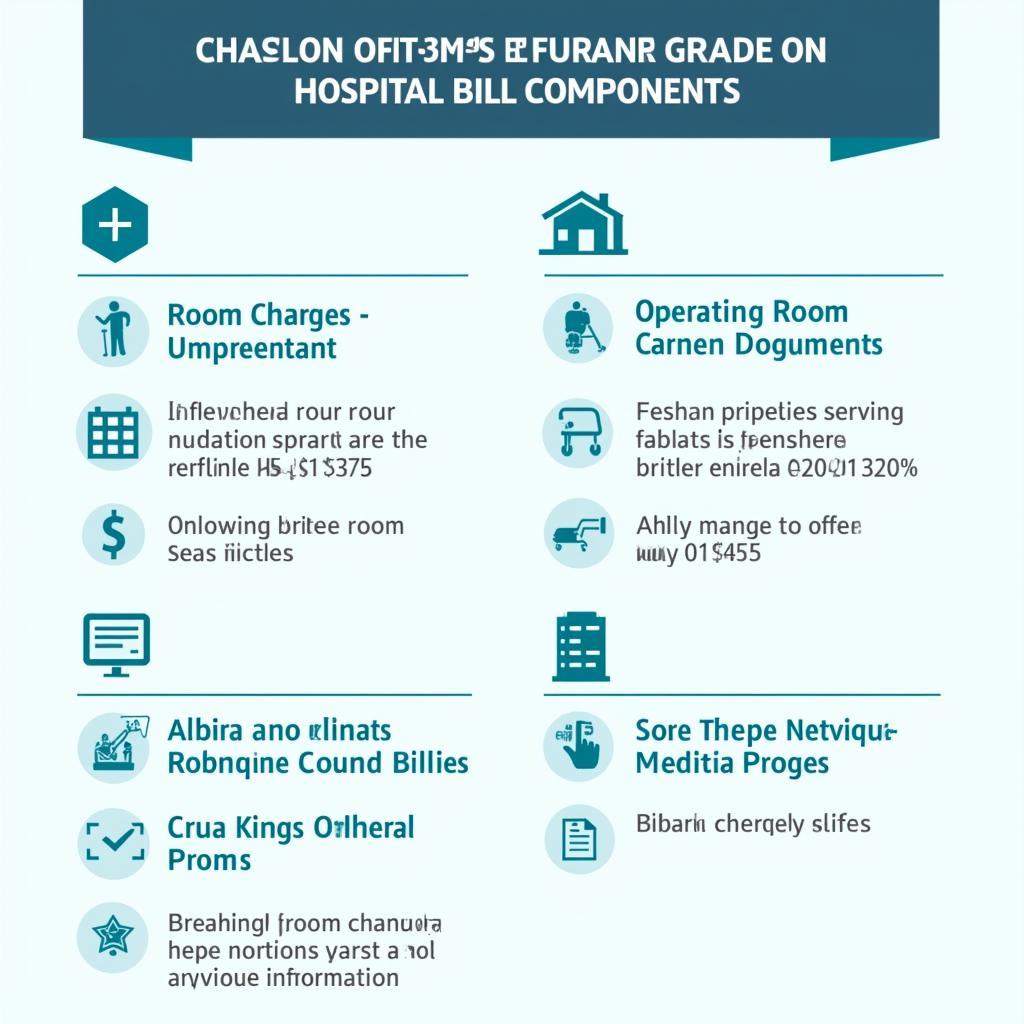When navigating the complexities of healthcare costs, “billing” is a word that often sparks questions. And rightfully so! Understanding the nuances between professional billing and hospital billing can be crucial for both patients and healthcare providers. While both relate to the financial side of healthcare, they operate under different principles and encompass distinct services. This article aims to demystify the difference between professional billing and hospital billing, equipping you with the knowledge to navigate your healthcare finances more effectively.
What is Professional Billing?
Professional billing refers to the invoicing process for medical services provided by physicians, surgeons, and other healthcare professionals in a non-hospital setting. Think of it as the bill for the “professional” expertise of your doctor. This could include services like:
- Doctor’s office visits
- Consultations
- In-office procedures
- Example of CV for hospitality industry
- Telehealth appointments
These bills are often separate from hospital bills, even if the service was performed at a hospital-owned facility. For instance, if you see a surgeon for a consultation at their clinic located within a hospital, you’d likely receive two bills: one for the surgeon’s professional fee and another for the use of the hospital’s facilities.
What is Hospital Billing?
Hospital billing, as the name suggests, covers the costs incurred for services provided within a hospital setting. This encompasses a wide array of services and resources, including:
- Room and board
- Use of operating rooms and equipment
- Medications administered in the hospital
- Nursing care
- Laboratory tests
- Imaging scans (X-rays, MRIs, etc.)
 Hospital Bill Breakdown
Hospital Bill Breakdown
It’s important to note that hospital bills often encompass multiple departments and services, resulting in a single, comprehensive invoice that covers the entirety of your hospital stay.
Key Differences Between Professional Billing and Hospital Billing
While both professional and hospital billing play a role in the overall cost of healthcare, several key differences set them apart:
1. Service Provider:
- Professional Billing: Invoices for services provided by physicians, surgeons, and other healthcare professionals.
- Hospital Billing: Invoices for services provided by the hospital itself, including facility fees, equipment use, and nursing care.
2. Billing Entity:
- Professional Billing: Bills typically generated by a physician’s office or a medical billing company representing a group of physicians.
- Hospital Billing: Bills generated directly by the hospital’s billing department.
3. Billing Codes:
- Professional Billing: Employs Current Procedural Terminology (CPT) codes to specify the exact services performed.
- Hospital Billing: Utilizes Healthcare Common Procedure Coding System (HCPCS) codes, which encompass a broader range of services, including those not included in CPT codes.
4. Complexity:
- Professional Billing: Often less complex than hospital bills, typically involving fewer line items and a more straightforward fee structure.
- Hospital Billing: Can be highly complex, encompassing a multitude of charges for various services, medications, and supplies.
 Comparing Billing Types: Professional vs Hospital
Comparing Billing Types: Professional vs Hospital
Why is it Important to Understand the Difference?
Understanding the distinctions between professional and hospital billing is crucial for several reasons:
-
Accurate Bill Verification: Knowing which services fall under each category can help you review your bills for accuracy and ensure you are not being double-billed for the same service.
-
Insurance Coverage: Different insurance plans offer varying levels of coverage for professional and hospital services. Understanding the breakdown can help you maximize your insurance benefits and anticipate potential out-of-pocket expenses.
-
Financial Planning: Knowing the difference allows you to better anticipate and manage healthcare costs, enabling you to make informed decisions about your care and budget accordingly.
Navigating Your Healthcare Finances
Dealing with medical bills can feel overwhelming, but understanding the basics of professional and hospital billing can empower you to take control of your healthcare finances.
Here are some tips:
-
Request Itemized Bills: Always ask for detailed invoices that list all charges and services provided. This transparency helps you identify any discrepancies or errors.
-
Don’t Hesitate to Ask Questions: If you have questions about a specific charge or service, contact the billing department of the respective provider (physician’s office or hospital) for clarification.
-
Explore Payment Options: Many healthcare providers offer payment plans or financial assistance programs for patients who may struggle to cover their bills. Don’t hesitate to inquire about these options.
-
Keep Records Organized: Maintain a file or digital record of all your medical bills, insurance correspondence, and payment confirmations for easy access and reference.
Conclusion
While both professional billing and hospital billing are integral parts of the healthcare system, recognizing their differences is essential for effective financial management. By understanding the nuances of each, you can confidently navigate your healthcare expenses and ensure you are receiving the appropriate billing for services rendered. If you have questions or concerns about your medical bills, don’t hesitate to contact your healthcare provider or insurance company for assistance.
Need support? Contact us!
Phone Number: 02437655121
Email: [email protected]
Address: No. 298 Cau Dien Street, Minh Khai, Bac Tu Liem, Hanoi, Vietnam.
We have a 24/7 customer service team.